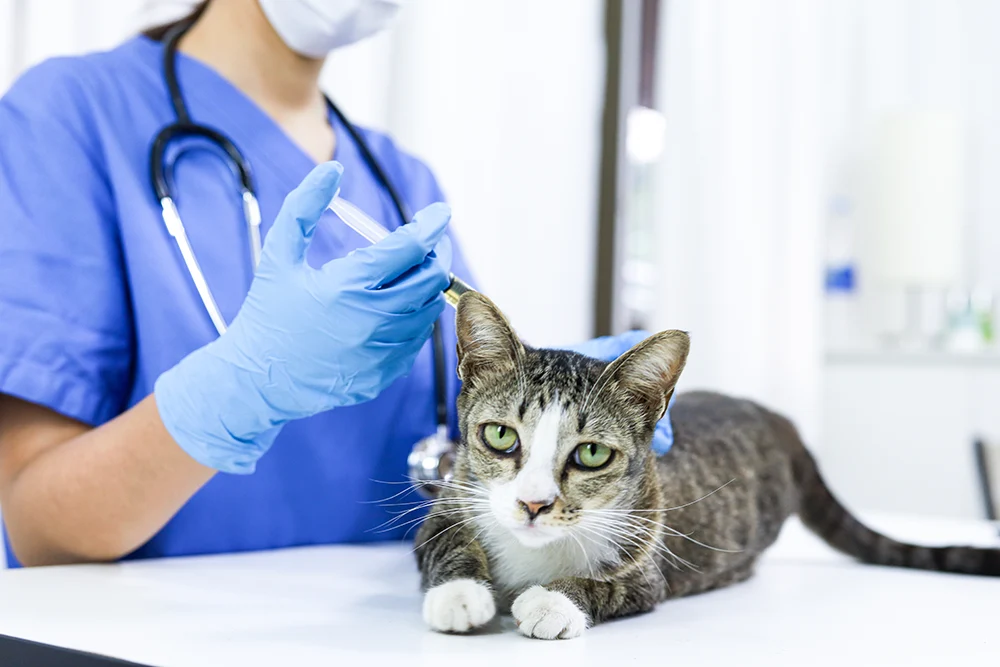FIP Global Cats: Comprehensive Guide to Feline Infectious Peritonitis Treatment, Research, and Global Support

Have you noticed unexplained weight loss or unusual fatigue in your cat? Perhaps you’ve seen swelling and fluid in the abdomen or chest. These can be troubling signs. You might suspect something serious, but it’s difficult to be certain. Feline Infectious Peritonitis (FIP) is one disease you can’t afford to ignore.
FIP is complicated, serious, and often misunderstood. Understanding it clearly helps improve your cat’s quality of life and increase chances of successful fip treatment. Here, we’ll explore what every responsible cat owner and veterinarian needs to know about FIP, treatments available worldwide, and how you can get involved in global support communities.
What is Feline Infectious Peritonitis (FIP)?
Feline Infectious Peritonitis (FIP) is a severe viral disease caused by mutations of feline coronavirus (FCoV). Coronavirus itself is common among cats, usually harmless, and causes mild diarrhea or no symptoms at all. However, in a small percentage of cats, it mutates into FIP—an aggressive, lethal condition.
Symptoms and Clinical Signs of FIP
Diagnosing FIP can be challenging because symptoms often mimic other diseases. The disease comes in two primary forms: effusive FIP (also called wet FIP) and non-effusive (dry FIP).
- Effusive FIP: Typical clinical signs include accumulation of fluid in the abdomen or chest, leading to visible swelling, breathing difficulties, or lethargy.
- Dry FIP: It lacks obvious fluid accumulation, making it even more difficult to diagnose. Symptoms can include fever, weight loss, neurological issues, and eye inflammation.
Common early signs of FIP include:
- Persistent fever
- Loss of appetite
- Gradual but severe weight loss
- Lethargy and weakness
- Swollen abdomen or breathing problems
- Neurological changes in advanced cases
Early detection through comprehensive veterinary evaluations including blood tests and ultrasound imaging greatly improves outcomes.
How Long Do Cats With FIP Live?

Without treatment, FIP progresses quickly. Most cats diagnosed with FIP have historically survived only days to weeks once symptoms begin. However, recent advancements in global veterinary medicine have significantly improved survival rates. With modern antiviral treatments, cats diagnosed early can live significantly longer, even achieving complete remission.
Global Incidence and Regional Differences of FIP
FIP occurs worldwide and can affect cats of any breed or age. It is particularly common in shelters, multi-cat households, and breeding facilities. Rates are higher in these environments due to stress and continuous exposure to FCoV.
Regions vary in FIP incidence due to different cat care practices, veterinary healthcare availability, and awareness. Countries with higher populations of stray or feral cats, or densely populated cat shelters, typically see higher rates of FIP.

Diagnosis of FIP – Why is it so Difficult?
There’s no single test for FIP. Veterinarians must combine multiple diagnostic methods, including:
- Blood tests to check levels of white blood cells, proteins, and other markers.
- Examination of fluids via the Rivalta test (to distinguish FIP-related fluids).
- Polymerase chain reaction (PCR) tests to detect virus mutations.
- Clinical evaluations, including detailed imaging (ultrasound or X-rays).
Despite these tools, reaching a confirmed FIP diagnosis remains challenging. Often veterinarians depend on combined evidence from clinical signs and diagnostic results. Early suspicion and multiple diagnostic approaches are critical for timely intervention.
FIP Global Cats Advancements in FIP Treatment
Exciting new research has made it possible to treat FIP successfully. Leading treatments involve antivirals like GS-441524. Veterinary experts globally recommend GS-441524 for its ability to halt viral replication, effectively giving cats a new chance at life.
- Treatment typically lasts 12 weeks.
- Early intervention improves prognosis dramatically.
- GS-441524 is available in injectable forms, and fip treatment tablets are increasingly available.
For optimal results, choose reputable sources such as PetExist, recognized globally for their high-quality GS-441524 formulations.
Cost of FIP Treatment – Is It Affordable?
FIP treatment costs vary globally. Initially, antiviral treatments were prohibitively expensive. However, increased availability and global demand have significantly reduced prices, making it more accessible. Pet owners worldwide now report successful treatments at much lower costs compared to a few years ago.
An average complete 12 weeks GS-441524 treatment course can now cost significantly less, making it a practical option for pet owners worldwide.

Global Success Stories – You’re Not Alone
Countless pet owners worldwide have successfully treated their cats for FIP, thanks to advancements like GS-441524. International online communities offer support, practical advice, and encouragement. These groups allow pet owners and veterinarians to share experiences, emotional support, and medical advice, greatly improving treatment outcomes and quality of care.
Joining such global communities helps pet owners navigate the emotional and practical challenges of treating FIP.
How to Prevent FIP
FIP prevention relies primarily on reducing exposure to feline coronavirus and lowering stress levels:
- Maintain hygiene in multi-cat homes and shelters.
- Regular vet check-ups to catch early signs.
- Reduce stressors such as moving, overcrowding, or sudden dietary changes.
- Proper nutrition and care enhance your cat’s immunity and general health.
FIP Global Cats – Join the Fight Against FIP Today
Facing a potential FIP diagnosis is frightening. But you’re not alone. By recognizing early symptoms of FIP, performing appropriate diagnostic procedures, and starting treatment promptly, you greatly increase your cat’s chance of recovery.
If you suspect your cat might have FIP, act now:
- Schedule comprehensive blood tests and diagnostic procedures.
- Contact a reliable supplier for GS-441524 treatment.
- Join global support communities for additional guidance and emotional support.
By acting quickly and confidently, you can significantly improve your cat’s quality of life and survival chances.
Final Thoughts
Feline Infectious Peritonitis (FIP) doesn’t have to be a death sentence anymore. With early diagnosis, effective treatment, and global support, cats can and do survive and thrive. Stay informed, seek expert advice, and never hesitate to reach out for support.
Together, we can help cats across the globe overcome FIP.
Contact us today to learn more about GS-441524 treatments or to connect with a global FIP support community. Your cat deserves the best care possible.

